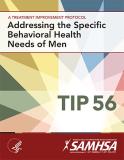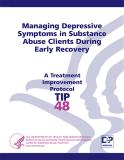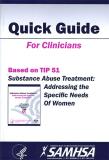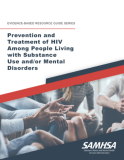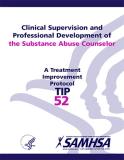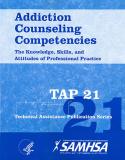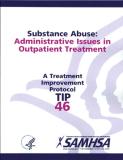
This manual provides guidelines for administrators on addressing issues in outpatient treatment for alcohol and substance misuse. It discusses cultural competence, management and strategic collaborations, human resources, financing, and performance and outcomes improvement.
Units per Product
Download
TIP 46: Substance Abuse: Administrative Issues in Outpatient Treatment
File Type: PDF
File Size: 6.98 MB


